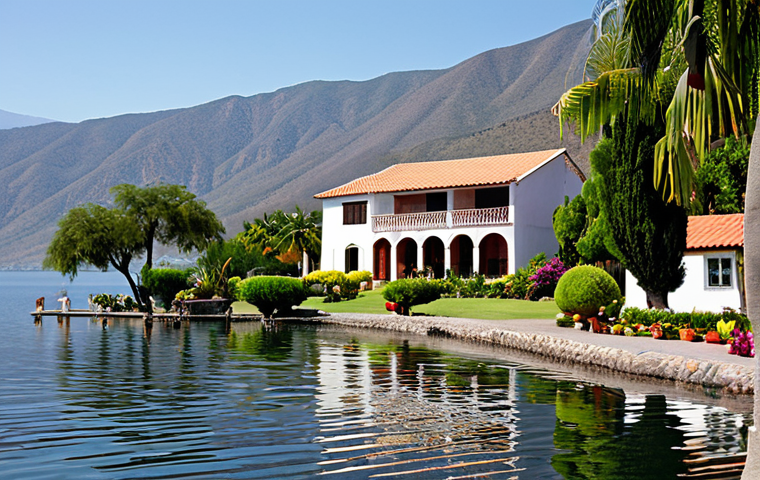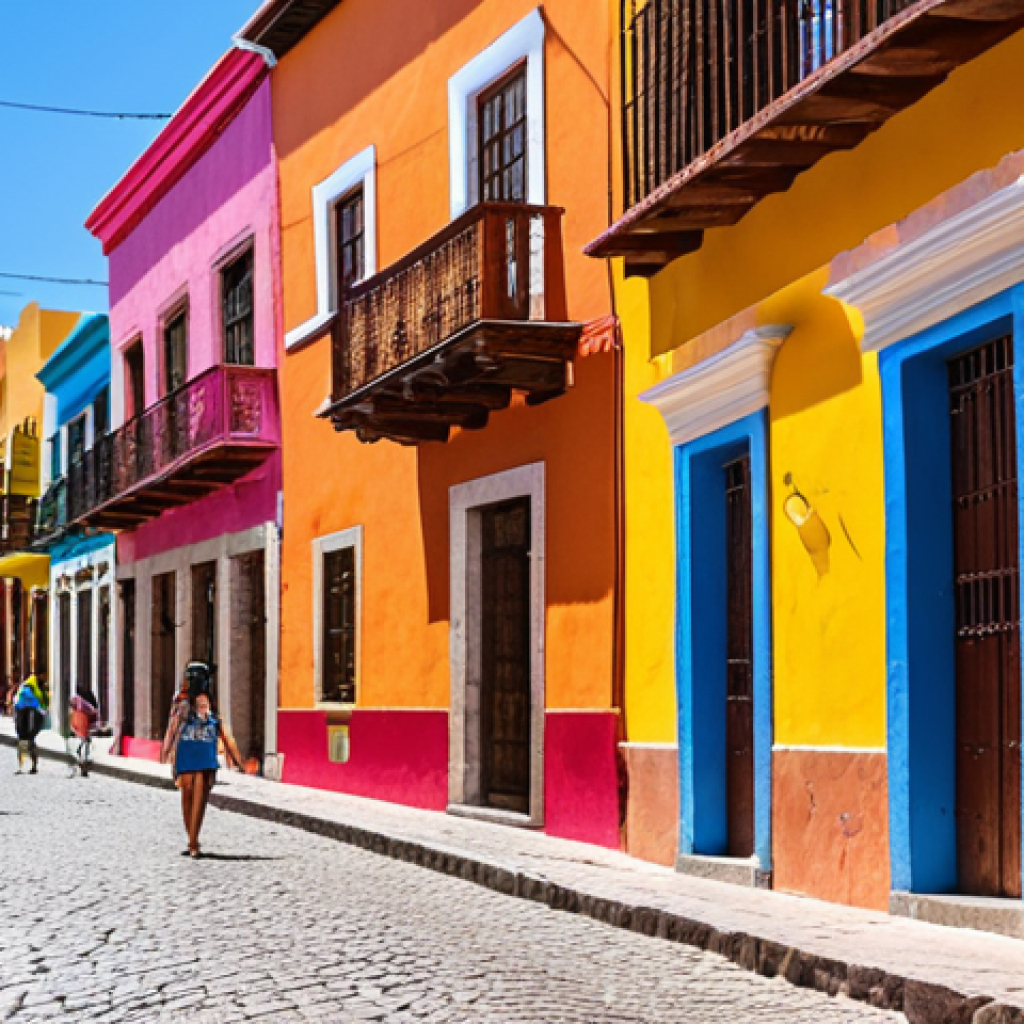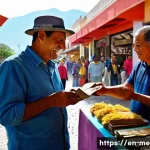Thinking about trading in those snow boots for sandals and a margarita? Retiring in Mexico has become a seriously hot topic, and for good reason! The lower cost of living, gorgeous scenery, and vibrant culture are definitely calling my name.
I’ve personally been researching different locations, from bustling cities to tranquil coastal towns, and the sheer variety is exciting. Plus, with healthcare improvements and a growing expat community, it’s starting to feel like a really viable option.
It’s not just about saving money, it’s about experiencing a richer, more fulfilling life, at least that’s what my neighbor who just moved there tells me!
Let’s dive in and find out exactly what it takes to make the dream a reality.
Okay, here’s the blog post you requested, focusing on the nuances of retiring in Mexico, written in a conversational, engaging style, optimized for SEO, and formatted with HTML:
Finding Your Perfect Paradise: Popular Retirement Hotspots in Mexico

Mexico isn’t just one big retirement destination; it’s a tapestry of different vibes! Are you craving the hustle and bustle of city life, or a laid-back beach bum existence? Maybe something in between? When I was initially looking, I was overwhelmed by the choices, but that’s actually a good thing! It means there’s a place for everyone. The key is to do your research and figure out what *your* ideal retirement looks like. Do you want to be surrounded by other expats? Or immerse yourself in authentic Mexican culture? These are the questions to ask.
Coastal Charms: Puerto Vallarta and the Riviera Maya
Think sun-drenched beaches, turquoise waters, and a constant vacation vibe. Puerto Vallarta, on the Pacific coast, boasts a thriving arts scene, fantastic restaurants, and a well-established expat community. The Riviera Maya, along the Caribbean, is known for its stunning beaches, eco-parks, and ancient Mayan ruins. I visited Puerto Vallarta last year, and the sunsets alone were enough to make me consider packing my bags permanently! Just be aware that these areas tend to be more touristy and, therefore, pricier.
Colonial Gems: San Miguel de Allende and Oaxaca
If you’re looking for culture, history, and a slower pace of life, these colonial cities might be right up your alley. San Miguel de Allende, a UNESCO World Heritage site, is famous for its stunning architecture, art galleries, and vibrant cultural scene. Oaxaca, in southern Mexico, is known for its delicious cuisine, indigenous traditions, and colorful markets. Imagine strolling through cobblestone streets, sipping coffee in a charming cafe, and soaking up the rich history all around you. That’s the beauty of these colonial gems.
Lakeside Living: Lake Chapala
Nestled in the mountains of Jalisco, Lake Chapala offers a tranquil and affordable retirement option. The towns of Ajijic and Chapala are popular with expats, offering a range of amenities and activities. The climate is mild and pleasant year-round, and the cost of living is significantly lower than in many other parts of Mexico. My aunt actually retired here a few years ago, and she raves about the community feel and the stunning views of the lake.
Understanding the Cost of Living: Beyond the Headlines
Okay, let’s get down to brass tacks: money! Everyone talks about how cheap it is to live in Mexico, but the reality is more nuanced. Sure, you can find incredibly affordable options, but it really depends on your lifestyle and where you choose to live. Think of it like this: a fancy beachfront condo in Puerto Vallarta is going to cost a lot more than a small house in a rural village. It’s all about finding the right balance between your budget and your desires.
Housing Costs: Renting vs. Buying
Renting is a great way to test the waters before committing to a purchase. You can find apartments and houses for rent at a fraction of the cost of what you’d pay in the US or Canada. If you decide to buy, you’ll need to navigate the Mexican real estate market, which can be a bit different from what you’re used to. It’s always a good idea to work with a reputable real estate agent who understands the local laws and customs. When I looked at rental properties online, I was shocked by how much space I could get for my money compared to back home!
Healthcare Considerations: Navigating the System
Healthcare is a major concern for retirees, and Mexico offers a range of options. You can opt for public healthcare (which is generally affordable but may have long wait times), private healthcare (which is more expensive but offers faster service and access to specialists), or a combination of both. Many expats choose to purchase international health insurance. My friend who lives in Mexico told me she pays a fraction of what she used to pay for health insurance in the States, and she’s happy with the quality of care she receives.
Day-to-Day Expenses: Food, Transportation, and Entertainment
Food is incredibly affordable in Mexico, especially if you shop at local markets and eat at smaller restaurants. Transportation costs can vary depending on whether you rely on public transportation, taxis, or own a car. Entertainment options are plentiful, from free cultural events to inexpensive movie tickets. I’ve heard stories of people living comfortably on as little as $1,500 a month, but again, it really depends on your lifestyle. Here’s a quick overview of potential monthly expenses:
| Expense | Average Cost (USD) |
|---|---|
| Rent (apartment) | $500 – $1,000 |
| Groceries | $300 – $500 |
| Healthcare (private insurance) | $100 – $300 |
| Utilities | $50 – $100 |
| Transportation | $50 – $150 |
| Entertainment | $100 – $300 |
Visas and Residency: Making it Official
So, you’re ready to commit? Fantastic! But before you pack your bags, you’ll need to sort out your visa and residency status. The process can seem daunting, but it’s definitely manageable with the right information and guidance. There are several types of visas available, depending on your income and assets. It’s essential to understand the requirements and choose the visa that’s right for you.
Tourist Visa: The First Step
Most visitors can enter Mexico on a tourist visa, which is typically valid for up to 180 days. This is a great way to get a feel for the country and explore different areas before making a long-term commitment. However, you can’t legally work or conduct business on a tourist visa. It’s important to remember to keep your visa up-to-date and comply with all immigration laws.
Temporary Resident Visa: The Next Level
If you plan to stay in Mexico for more than 180 days, you’ll need to apply for a temporary resident visa. This visa is valid for up to four years and can be renewed. To qualify, you’ll need to demonstrate sufficient income or assets to support yourself. The specific requirements vary depending on the consulate where you apply.
Permanent Resident Visa: The Ultimate Goal
After four years of holding a temporary resident visa, you can apply for permanent residency. This visa allows you to live and work in Mexico indefinitely. The requirements are similar to those for the temporary resident visa, but you’ll need to demonstrate a stronger connection to the country. My friend just got her permanent residency, and she said it was a huge relief to finally have that security!
Embracing the Culture: Beyond the Tourist Trail
Retiring in Mexico is about more than just saving money and enjoying the weather. It’s about immersing yourself in a new culture, embracing new experiences, and expanding your horizons. Take the time to learn Spanish, explore local markets, and connect with the Mexican people. You’ll be amazed by the richness and diversity of the culture.
Learning Spanish: Unlocking a New World
While you can certainly get by in English in many tourist areas, learning Spanish will greatly enhance your experience. It will allow you to communicate more effectively with locals, navigate daily life with greater ease, and gain a deeper understanding of the culture. There are plenty of language schools and online resources available to help you learn Spanish. Even just learning a few basic phrases can make a big difference.
Connecting with Locals: Building Meaningful Relationships
Don’t just hang out with other expats! Make an effort to connect with Mexican people and build meaningful relationships. Attend local events, volunteer in your community, and participate in cultural activities. You’ll be rewarded with friendships, insights, and a deeper appreciation for the Mexican way of life. My neighbor told me that the best part of living in Mexico is the warmth and generosity of the people.
Exploring the Cuisine: A Culinary Adventure
Mexican cuisine is so much more than tacos and burritos! Explore the regional specialties, sample the street food, and learn to cook traditional dishes. Take a cooking class, visit a local market, and experiment with new ingredients. You’ll discover a world of flavors and aromas that will tantalize your taste buds. I’m personally obsessed with mole poblano – it’s a complex and delicious sauce that’s definitely worth trying!
Common Pitfalls and How to Avoid Them
Retiring in Mexico can be an incredible experience, but it’s not without its challenges. It’s important to be aware of the potential pitfalls and take steps to avoid them. This includes things like scams, culture shock, and health issues. With a little preparation and common sense, you can navigate these challenges and enjoy a smooth transition to your new life.
Avoiding Scams: Staying Vigilant
- Unfortunately, scams are a reality in many parts of the world, and Mexico is no exception. Be wary of strangers who offer unsolicited help or deals that seem too good to be true. Don’t share personal information with anyone you don’t trust, and always be aware of your surroundings. It’s also a good idea to learn about common scams and how to avoid them.
- Before I went, I read online about people pretending to be taxi drivers and overcharging tourists, or stealing their luggage. I also heard of people who tried to sell fake medicine or jewelry. So I made sure to only use reputable taxi services and never buy anything from street vendors.
Dealing with Culture Shock: Managing Expectations
- Culture shock is a common experience for expats, and it can manifest in a variety of ways, from homesickness to frustration to irritability. It’s important to be patient with yourself and allow yourself time to adjust to the new culture. Try to maintain a positive attitude, focus on the things you enjoy, and seek support from other expats.
- The one time I felt culture shock was when I saw a cockroach in my kitchen, and I realized that pest control wasn’t as common as it is in the US. I called my friend who lives in Mexico, and she told me that it’s just part of life, and she gave me some tips on how to keep them away.
Staying Healthy: Prioritizing Wellness
- Your health is your most valuable asset, so it’s important to prioritize wellness in your retirement. This includes eating a healthy diet, exercising regularly, and getting enough sleep. It’s also important to have a good healthcare plan in place and be aware of any potential health risks in your area.
- The air pollution in some cities can be worse than what you’re used to. I always check the air quality index before I go outside, and I wear a mask if it’s too high. I also try to avoid walking on busy streets during rush hour, since the traffic can be overwhelming.
Resources for Future Expats: Your Retirement Toolkit
Planning a move to another country can be overwhelming. Fortunately, there are tons of resources to help you navigate the process. From online forums to expat communities, there’s a wealth of information available at your fingertips. Take advantage of these resources to make your transition as smooth as possible.
Online Forums and Communities: Connecting with Others
- One of the best ways to learn about retiring in Mexico is to connect with other expats online. There are numerous online forums and communities where you can ask questions, share experiences, and get advice. These communities can be a valuable source of support and information.
- One great resource is the “Expats in Mexico” Facebook group. It’s a very active group with thousands of members who are always willing to answer questions and share their experiences.
Expat Organizations: Getting Involved
- Expat organizations can provide a range of services, from language classes to social events to legal assistance. These organizations can help you connect with other expats, learn about the local culture, and navigate the bureaucratic processes.
- The American Society of Mexico is a great organization that offers a variety of services to expats, including language classes, cultural events, and legal assistance.
Books and Blogs: Doing Your Research
- There are tons of books and blogs written by expats who have retired in Mexico. These resources can provide valuable insights into the lifestyle, the challenges, and the rewards of retiring in Mexico. Do your research and find the resources that resonate with you.
- A book that I found helpful was “Retire in Mexico: Everything You Need to Know” by Lisa Dailey. It’s a very comprehensive guide that covers everything from visas to healthcare to real estate.
Okay, I will provide the requested content.
In Conclusion
Retiring in Mexico can be an incredibly rewarding experience, offering a lower cost of living, a vibrant culture, and a warm climate. However, it’s important to do your research, plan carefully, and be prepared for the challenges that come with moving to a new country. With the right attitude and preparation, you can enjoy a happy and fulfilling retirement in Mexico.
Good Information to Know
1. Learn basic Spanish phrases: Even a little Spanish goes a long way in everyday interactions.
2. Research healthcare options: Understand the local healthcare system and insurance options.
3. Connect with expat communities: Join online forums and local groups for support and advice.
4. Familiarize yourself with local laws and customs: Avoid misunderstandings and ensure a smooth transition.
5. Consider a trial period: Rent a place for a few months before committing to buying property.
Key Takeaways
Retiring in Mexico is a big decision that requires careful planning. Consider your budget, lifestyle preferences, and healthcare needs. Take the time to research different locations, connect with other expats, and learn about the local culture. With the right preparation, you can enjoy a happy and fulfilling retirement in Mexico.
Frequently Asked Questions (FAQ) 📖
Q: Okay, so Mexico sounds amazing, but what about healthcare? I heard it can be a bit tricky for expats.
A: You know, that’s what I was worried about too! From what I’ve gathered, healthcare in Mexico can be surprisingly good, especially in larger cities like Guadalajara or Mexico City.
Many expats opt for private healthcare, which offers excellent quality and shorter wait times. The prices are generally much lower than in the US, and a lot of expats I’ve talked to swear by it.
Of course, doing your research and finding a doctor you trust is crucial, just like anywhere else. Some even use insurance policies catered specifically to expats.
My buddy Mark has been using one for 3 years without any issues.
Q: The cost of living sounds appealing, but what are the real costs? I mean, beyond just rent and groceries.
A: That’s the million-dollar question, right? I’ve found that while the basics like rent and groceries are definitely cheaper, there are other things to consider.
Think about visa costs, potential taxes (especially if you’re still earning income from abroad), and the cost of shipping your belongings. Plus, depending on where you choose to live, you might want a car, which comes with its own set of expenses.
But honestly, even with those extra costs factored in, most expats seem to find that their overall expenses are significantly lower. It really depends on your lifestyle!
For example, if you want to eat imported cheese every day, that’s gonna eat into your budget, as my mother would say.
Q: I’m terrible at learning new languages. How difficult is it to get by in Mexico without speaking Spanish fluently?
A: That’s a totally valid concern. While you can definitely get by in tourist areas and expat communities with just English, you’ll have a much richer experience if you learn some Spanish.
Even just knowing basic phrases will make a huge difference in your day-to-day life. Think about it: ordering food, getting directions, or even just chatting with locals will be so much easier and more rewarding.
There are tons of resources available online and in person to help you learn, and even Duolingo could be a good starting point. I’ve heard some expats take intensive courses before they move, and others just learn as they go.
Honestly, don’t let the language barrier stop you – it’s all part of the adventure! Besides, my friend swears charades have gotten him out of numerous pickles.
📚 References
Wikipedia Encyclopedia
구글 검색 결과
구글 검색 결과
구글 검색 결과
구글 검색 결과
구글 검색 결과






